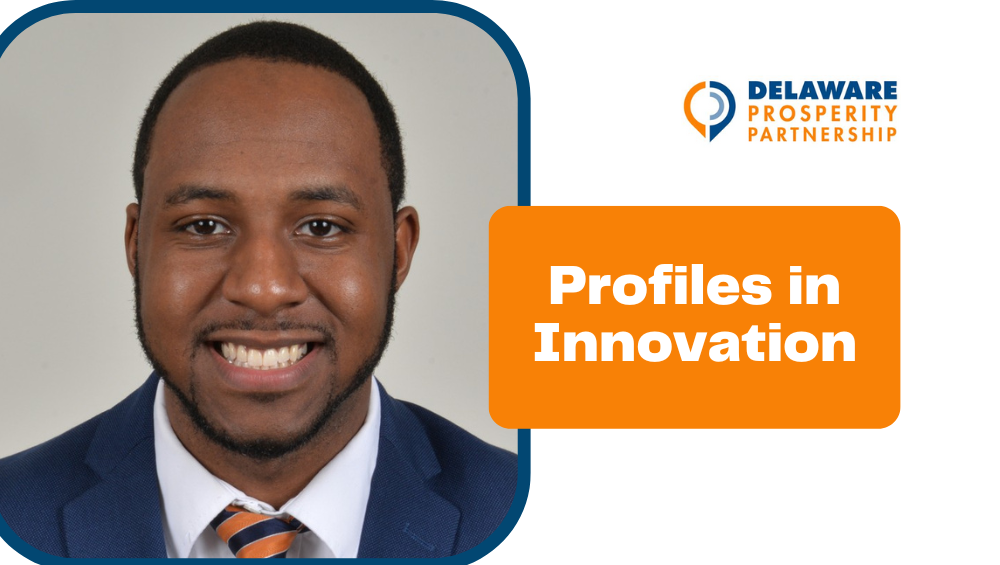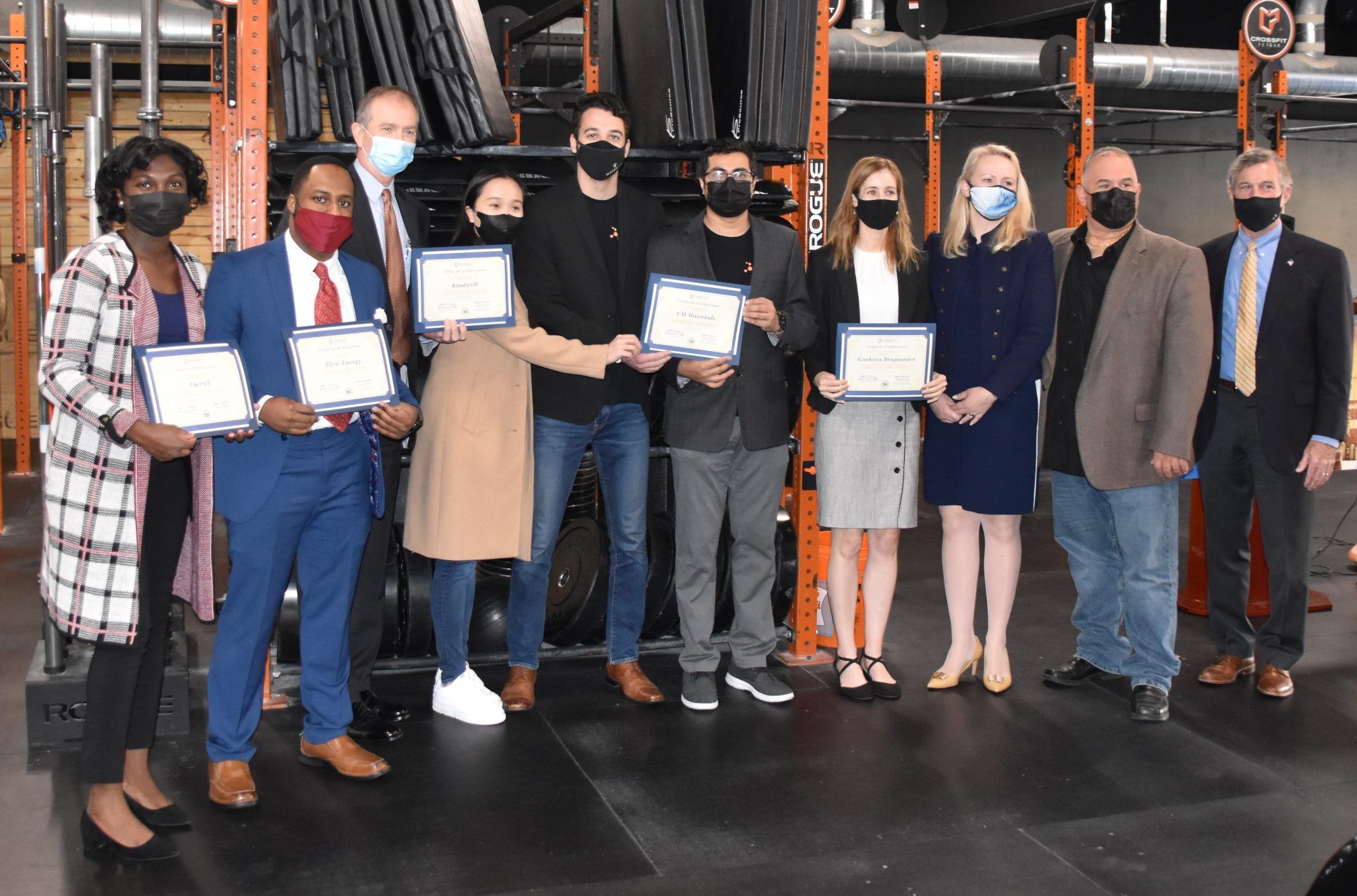Jalaal Hayes, Ph.D., Founder of Elyte Energy

An Ongoing Series Highlighting Delaware Innovators
At 22, Dr. Jalaal Hayes made Delaware State University (DSU) history as its youngest doctoral degree candidate. The native of North Philadelphia earned this honor in 2015 by successfully defending his thesis “Thermodynamic and Kinetic Studies of Alkali-Metal Doped Lithium Amide-Magnesium Hydride Hydrogen Storage System.”
He then taught in Philadelphia for the Universal Companies and Cristo Rey Philadelphia High School for nearly two years in pursuit of his teaching mission to make science, technology, engineering, arts and mathematics (STEAM) simple. He spent the following two years as a visiting assistant professor of physical chemistry at DSU and then was an assistant professor of chemistry at Lincoln University for almost four years.
In 2020, Hayes founded Elyte Energy, a Dover, Delaware-based clean-energy company that uses patent-protected hydrogen technology to build a highly efficient power supply for fixed and portable devices. The startup won an Encouraging Development, Growth and Expansion (EDGE) Grant from the Delaware Division of Small Business in 2021. The grant helped fund laboratory space and equipment to develop a commercial prototype of Elyte’s hydrogen-based system, and the technology has application in the greater global vehicle market.

Hayes previously founded Elyte Universal Network, a STEAM-based content entity that focuses on making difficult and complex sciences simple and accessible to all communities. He also has authored two books and spoken at numerous events, including TEDxWilmingtonSalon, delivering “The Chemistry of Community Building,” and the Innovative Applied Energy Conference held at the University of Oxford in England. In addition, he released a documentary about his journey to becoming the youngest applied chemistry Ph.D. candidate in America called “Exploding Dreams: A STEAM Story” in 2021.
Speaking with Delaware Prosperity Partnership, Hayes shared his views on innovation in Delaware along with advice he’d give to hungry innovators.
Why is Delaware a great state to be an innovator?
Due to the state’s cost-effective living and growth potential, economically and socially, Delaware is a great state to innovate, communicate and elevate the status quo of the country for generations to come.
In your view, what qualities should a successful innovator have?
Excellent communication skills, the ability to see and create the future and the ability to provide solutions and opportunities to their respective industries and communities – financially, socially, etc. Along with these qualities, you must be resilient and willing to learn and apply lessons fast in every trial and tribulation that comes your way that tries to block you from achieving your minimum viable product or even that first contract to pay for your idea. In addition to the qualities above, production, quality and speed are the keys to innovation, especially in our current times.
What advice would you give innovators just starting?
When discussing your innovation, be clear and concise on how your technology or idea can apply to specific problems and make things easier, better, faster or cost-effective for the overall “big picture.” For innovators just starting, draw or write out your idea and ask people if they would buy into it and why. You can start with friends, but you’ll need to ask outside your trusted group. If there’s a positive response, go for it and begin to build the most cost-effective product possible. Get a team or expert advisors to assist with every checkpoint along the journey. In addition, it helps to constantly check your technology readiness level for your technology as you gain more information and new results from each experiment and iteration.
How do you decide whether a new idea is worth pursuing or should be set aside?
You need to ask the following questions:
- Is it the right time to solve this problem?
- How many people can buy into the idea? Is it greater than 100 people? If so, go for it. If not, what is next?
- Are you willing to disrupt the status quo for the greater good?
Once you answer these questions and the answers indicate that you are ready to move forward, begin setting up SMART (specific, measurable, achievable, relevant and time-bound) goals for the development of the project.
Newsletter Sign Up
Stay Up To Date With Delaware